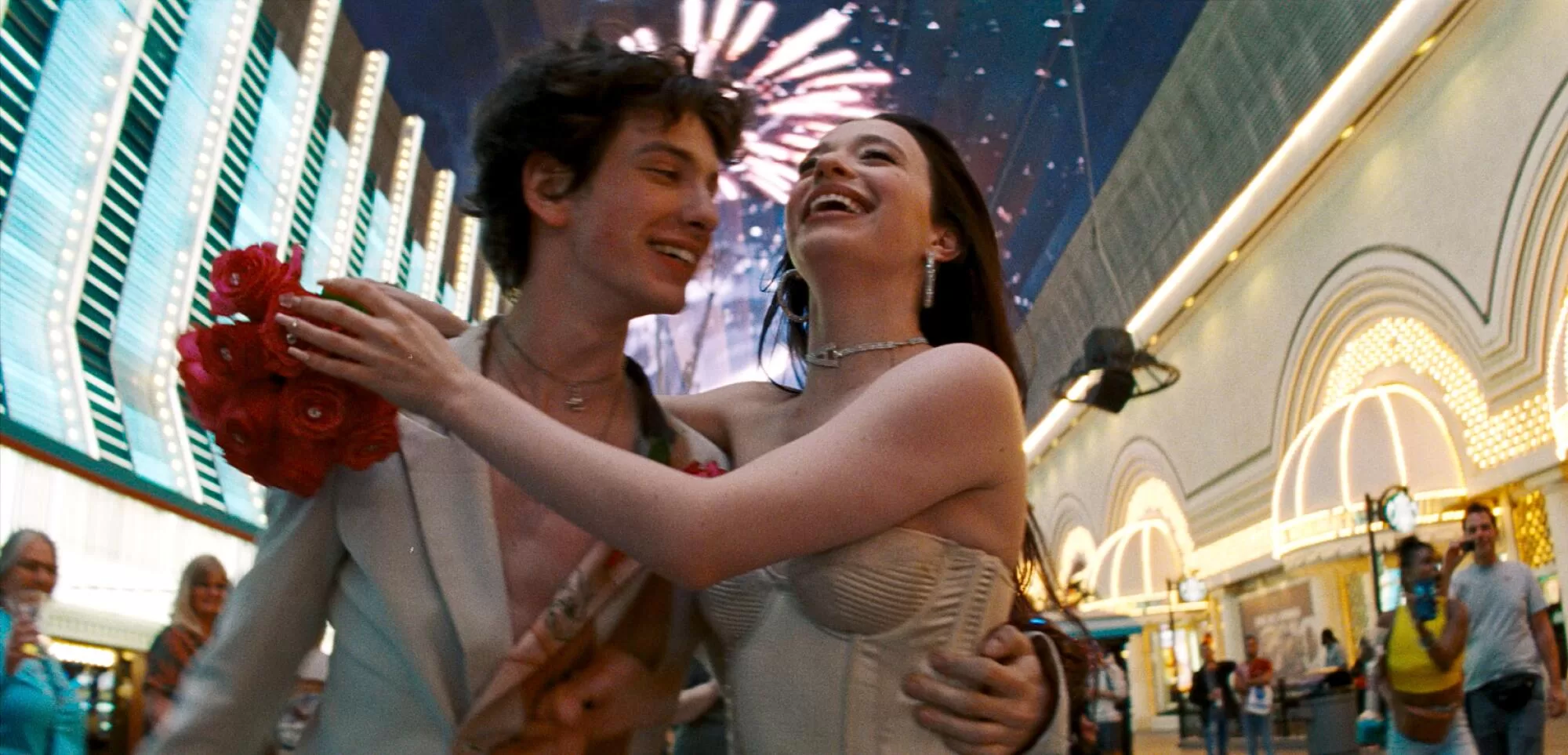We’re heading into the early stretch of awards season where voters are about to embark on a long holiday weekend, give thanks and sift through a topsy-turvy world in which it’s the Dallas Cowboys and not the Detroit Lions who can be safely ignored on the Thanksgiving Day football schedule.
And still … no best picture front-runner. In fact, it’s easier to knock holes in the cases for the most prominent contenders than to argue why it’s plausible they might win.
Still, some movie has to win the Oscar. I do wonder if we’ll look back on this time in a few weeks, slap our foreheads and think, “Of course, ‘Anora’ was always going to win,” because by that point it had swept through various precursors. Right now, though, that’s as hard to imagine as the Cowboys making the playoffs. Or Jerry Jones building a stadium where sunlight isn’t an enemy.
Just for fun, let’s run down the five leading contenders, the movies that will head the field of 10 nominees. Maybe we can convince ourselves that we’re missing something. Or who knows, maybe we are missing something.
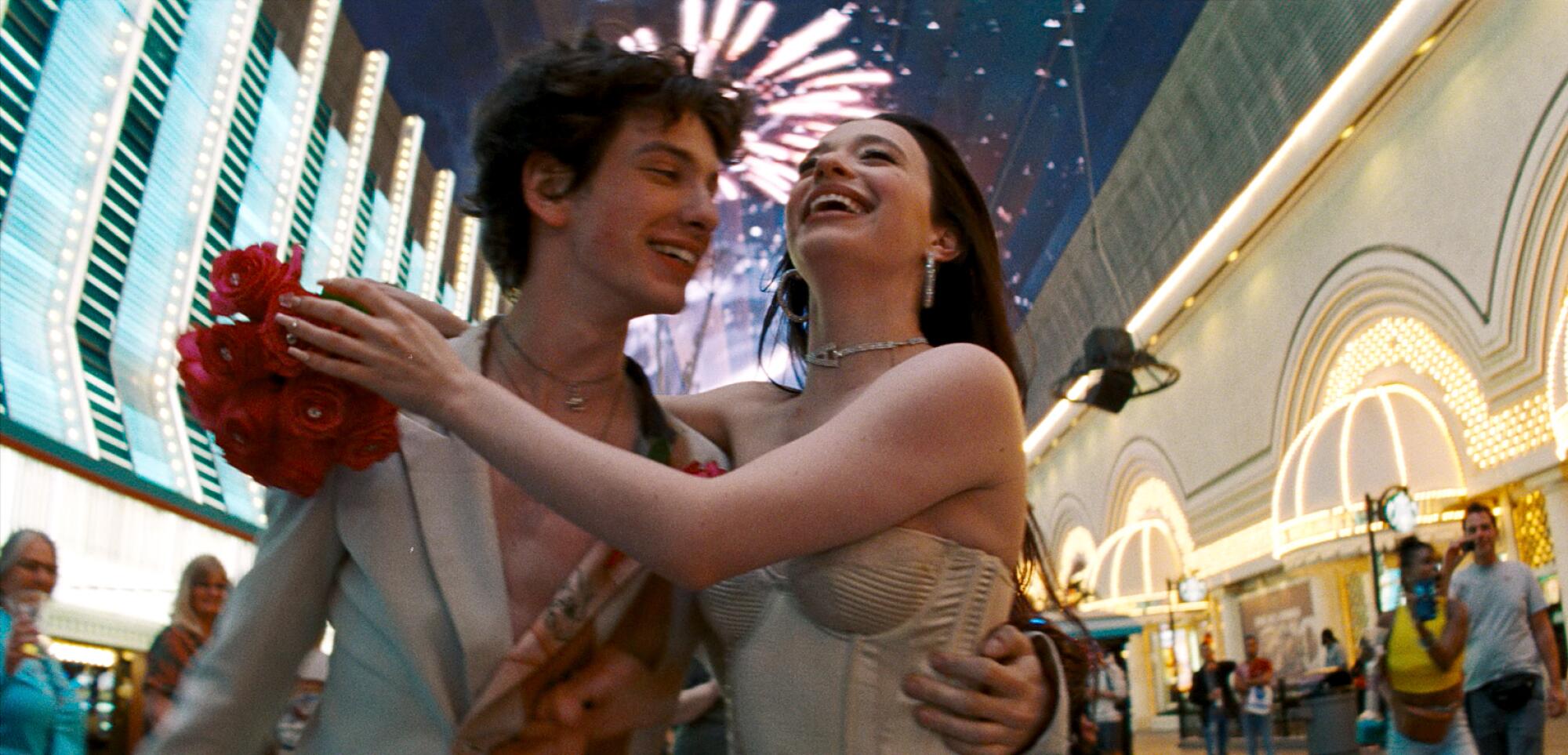
Mikey Madison and Mark Eydelshteyn in “Anora”
(Neon)
“Anora”: It starts with the letter A, so it’s at the top of the list. Also: It’s arguably the best of the movies here, likely to win best picture from the Los Angeles or New York film critics’ groups, with writer-director Sean Baker taking some honors as well. It’s also an indie hit, topping $10 million, and, judging from the conversations I’ve had with academy voters, it has left most everyone who has seen it more than satisfied.
Ostensibly, “Anora” is about a stripper who moonlights as a sex worker and ends up marrying one of her clients, the irresponsible son of a Russian oligarch. But it’s many movies in one — a screwball comedy, a tense reckoning with reality, a story of wealth and power, a tender love story. There’s humor and sadness and terror, sometimes in the same scene. It has a star turn from Mikey Madison, who might just win the lead actress Oscar. And there’s an utterly surprising, deeply soulful supporting performance from Yura Borisov, playing Igor, a hired goon who comes to love the title character almost as much as we do. He’s the movie’s secret weapon.
Is there a precedent for a movie about a sex worker winning best picture? You remember Joe Buck, right? (Not the ubiquitous sports announcer.) “Midnight Cowboy” took the Oscar, and it had an X rating. And we’ve come a long way in the last 55 years. OK … we’ve also regressed in some respects too. But “Anora” could very well be the movie to beat.
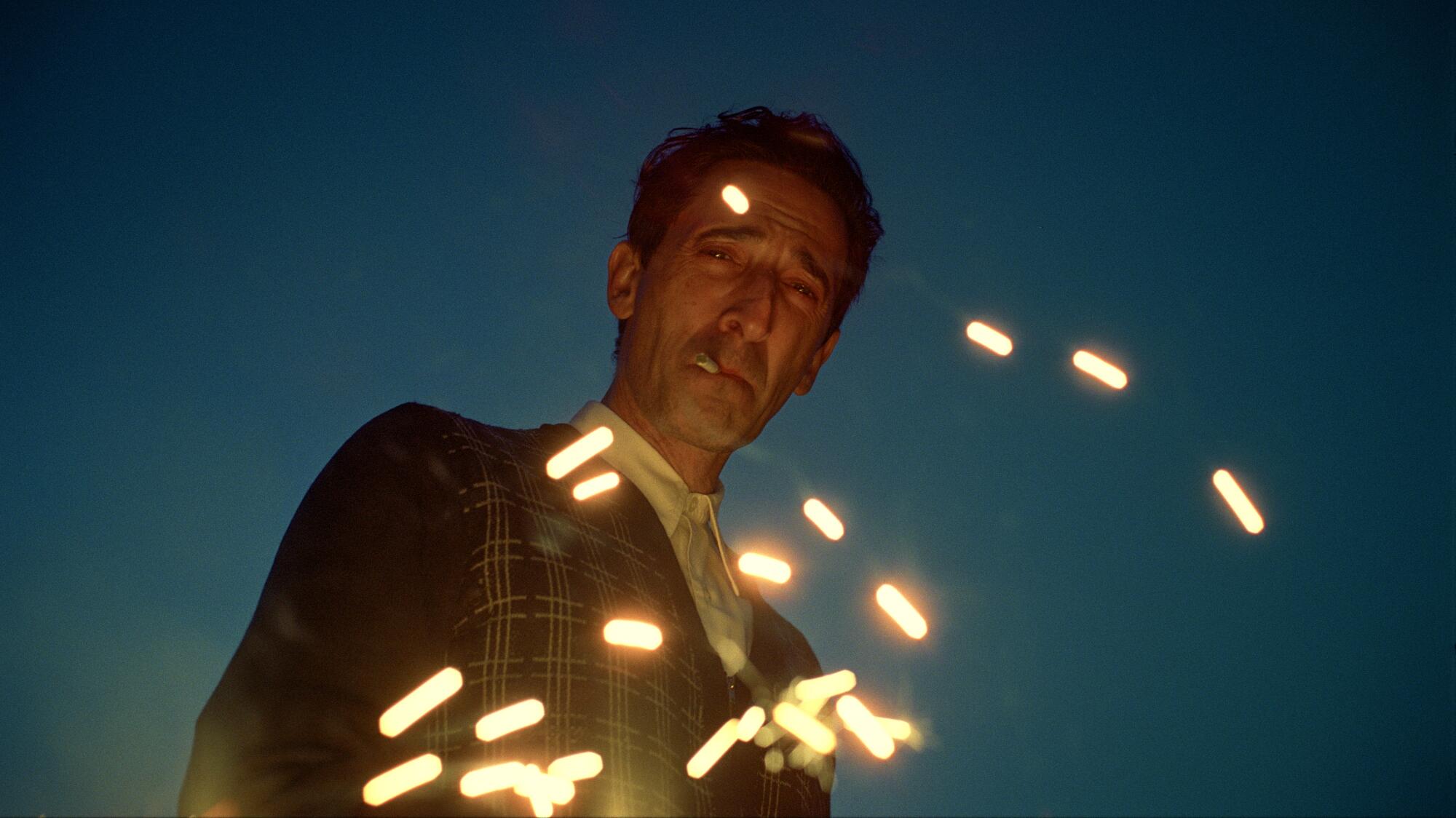
Adrien Brody in “The Brutalist.”
(A24)
“The Brutalist”: It’s 3 hours and 35 minutes long. It’s in 70mm. It has a built-in intermission, complete with a handy clock counting down the remaining time. Yes, Brady Corbet’s “The Brutalist” is a lot — but in a good way. Not like, say, “Babylon.” This is a movie I anticipate seeing again. It’s a big swing that mostly connects, a film with much to say about the immigrant dream at a time when the immigrant experience is very much in the national conversation.
“The Brutalist” is an event movie made for anyone who obsesses over their Letterboxd account. But it’s also an intimate story about a Holocaust survivor and brilliant architect who possesses a singular vision. So, though I wouldn’t recommend doing this, Oscar voters could watch it on the academy portal over the course of a couple of nights. It’d work. And they’d know exactly when to break up the viewing. Thanks, Brady Corbet! (No, seriously, thanks. “The Brutalist” is a stunning achievement.)
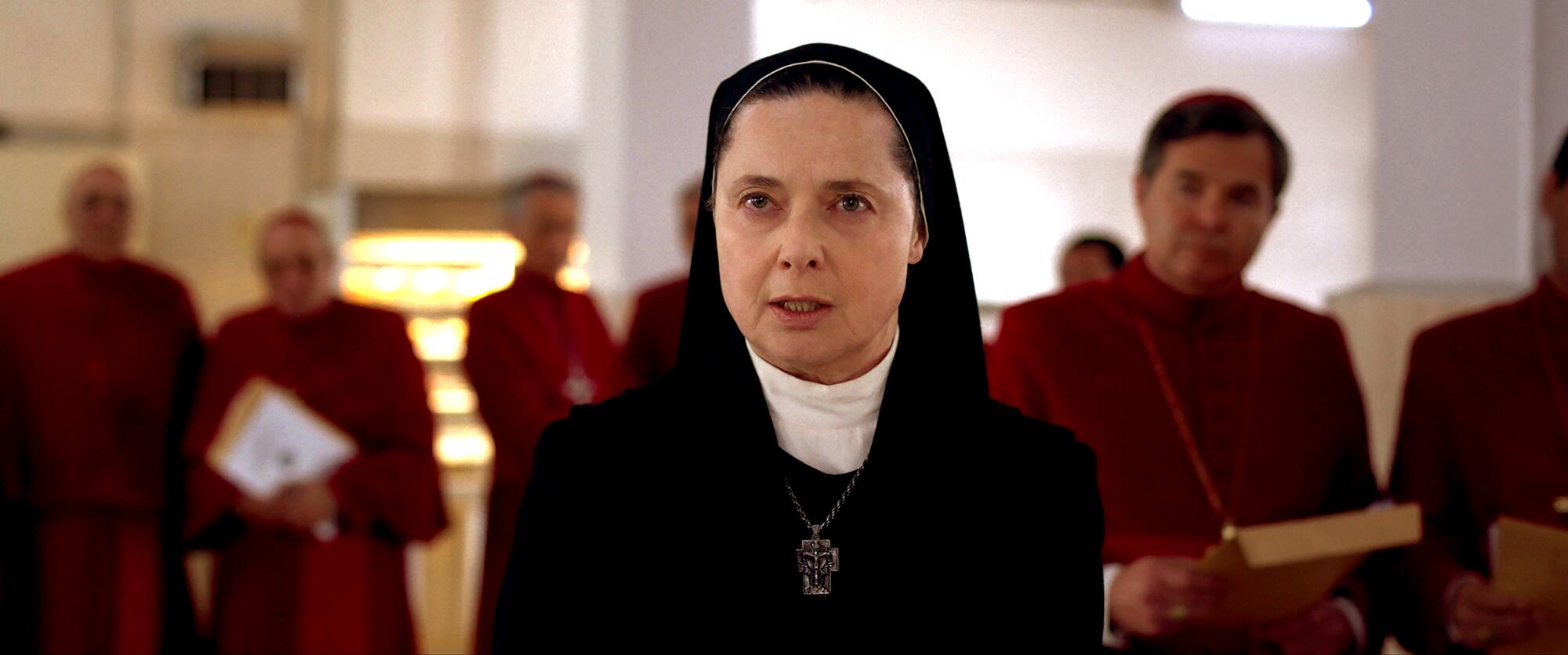
Isabella Rossellini stars as Sister Agnes in “Conclave.”
(Focus Features)
“Conclave”: I enjoyed “Conclave” when I caught its premiere at the Telluride Film Festival. We need more movies like “Conclave,” pulpy, impeccably made crowd-pleasers starring scene stealers like Ralph Fiennes and Stanley Tucci and Isabella Rossellini. In fact, you may be old enough to remember when there’d be dozens of these sleek melodramas geared toward grown-ups. That it has found an audience makes me happy, even if its story of the schemes involved in electing a new pope feels a bit slight and silly to take it too seriously as a movie that could win best picture. And that ending? Hoo-boy. It did get people talking, but maybe not in the ways that the filmmakers would appreciate.

Karla Sofía Gascón in “Emilia Pérez.”
(PAGE 114 – WHY NOT)
“Emilia Pérez”: I wrote about “Emilia Pérez” last week, calling it a lock for international feature, owing to the fact that it’s likely to pull in several nominations and a lot of people genuinely like it. But also: Some people really hate it, and they’re not shy about making their feelings known. It seems like there isn’t a group of people not offended by Jacques Audiard’s musical soap opera about a Mexican cartel boss looking to transition to a woman. Trans activists feel the movie is dismissive, as do many people who care about Mexican culture. As do many people devoted to Selena Gomez, who plays the cartel boss’ wife and has to say some truly awful dialogue. To sum up: It’s polarizing. And divisive movies don’t often go on to win the best picture Oscar.
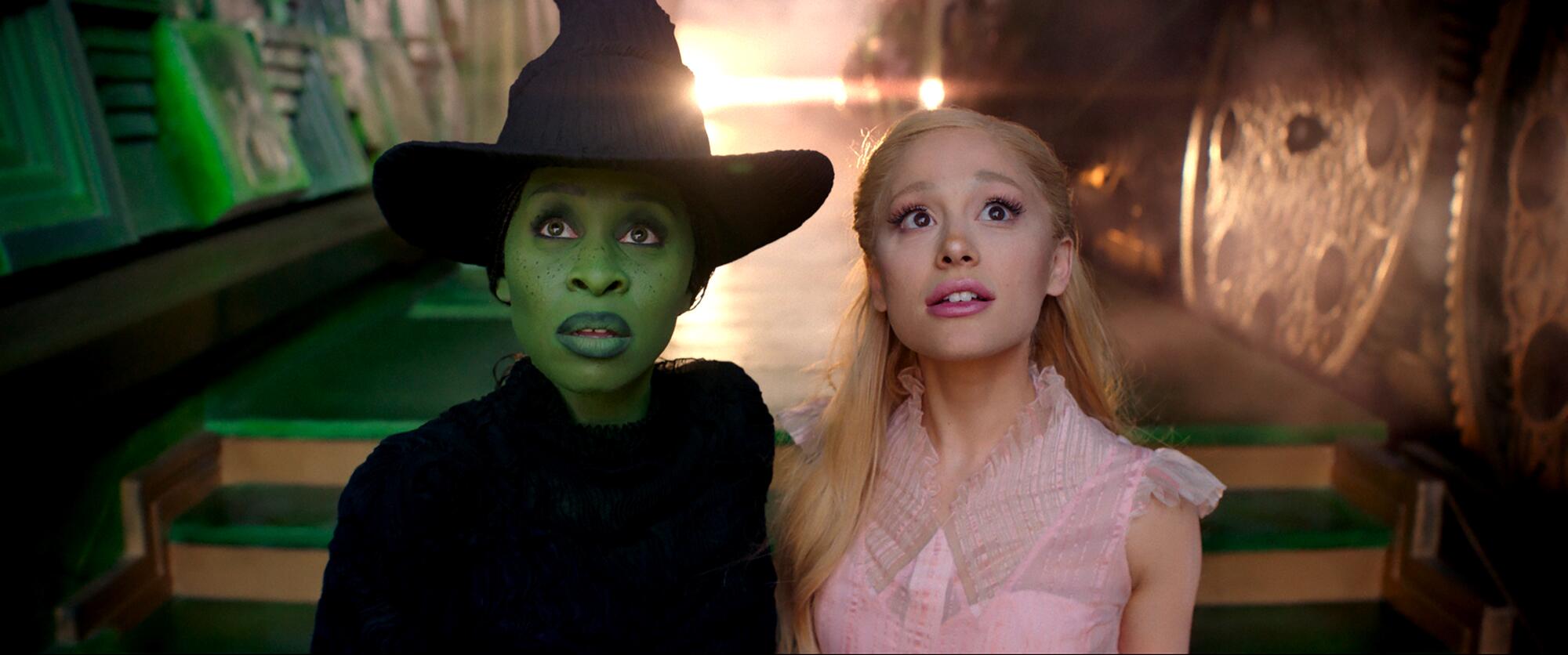
Cynthia Erivo is Elphaba and Ariana Grande is Glinda in “Wicked.”
(Universal Pictures)
“Wicked”: Here’s a movie that you may have heard a little something about. It’s the film adaptation of the Broadway musical, with Cynthia Erivo playing Elphaba, later known as the Wicked Witch of the West, and Ariana Grande doing light comedy as Glinda. It’s a story of women coming into their own and bonding over magic. You’ve probably already bought tickets to it.
The critics were kinder to “Wicked” than I thought they’d be, and guild audiences have greeted it with enthusiastic standing ovations. It figures to do well with fraudulent awards shows like the Golden Globes and Critics Choice Awards, meaning, at least in the case of the Globes, it’ll get some good airtime. Its blunt, allegorical references to fascism figure to play well postelection, but kids will like it too! Its biggest hurdle is that it’s the first entry of a two-part movie, just half the story. It’s the best half, from what I gather. But many voters will resist jumping the gun.
